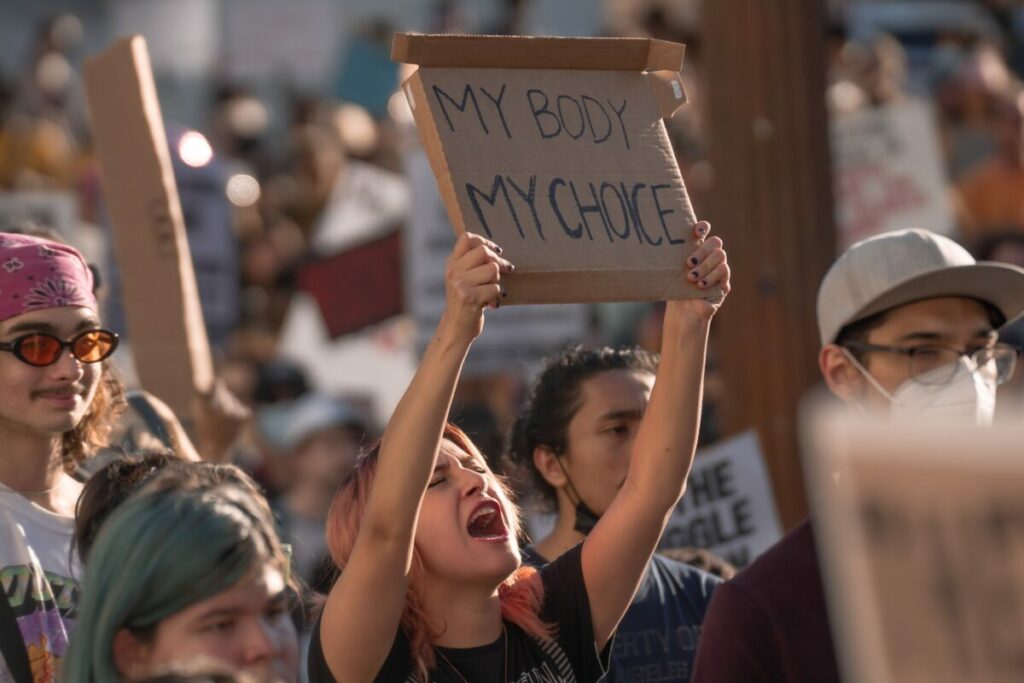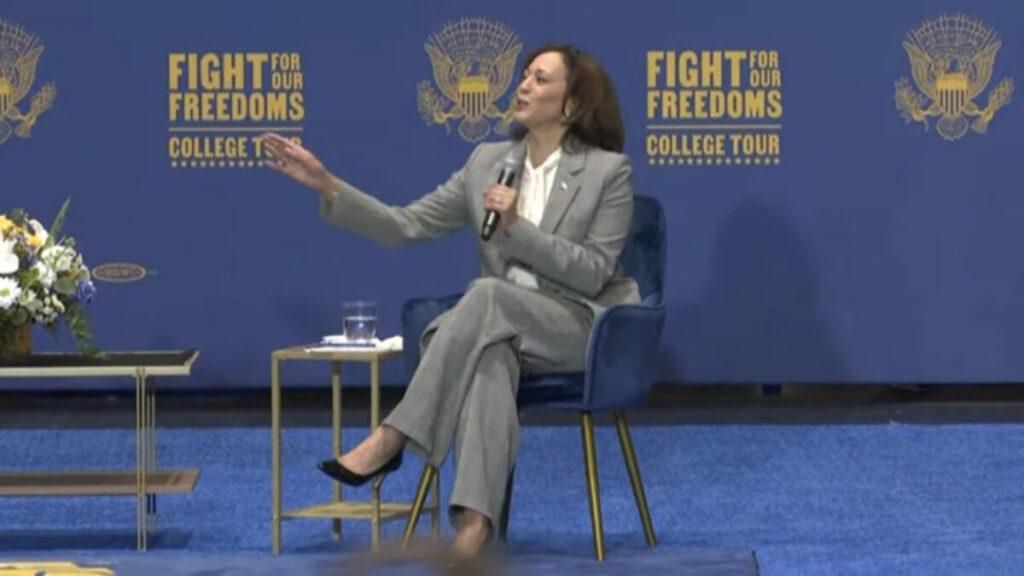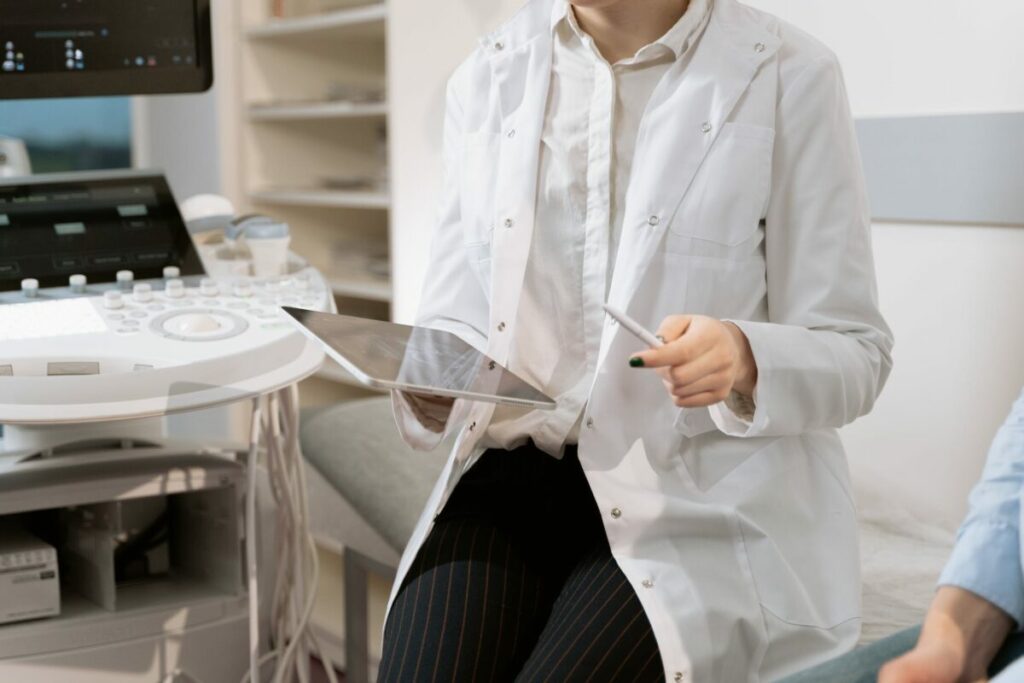
While the Supreme Court’s reversal of Roe v. Wade impacted people of all ages, college students may be feeling it the most. Their age and student status puts them in the unique position of being more vulnerable to unwanted pregnancies and more likely to experience educational and financial setbacks if they do give birth. According to data from the CDC, roughly 28 percent of abortion patients are between the ages of 20 and 24.
Access to reproductive healthcare is so crucial to this demographic that many incoming students are factoring abortion access into where they choose to attend college. According to a new study from Gallup and the Lumina Foundation, 60 percent of adults who do not have a degree say abortion laws are at least somewhat important in their decision to enroll in a specific school.
We’ve rounded up some news stories that highlight how college students are responding to changing abortion laws – as well as the cultural divides that are unfolding on campuses across the country. From protests to debates, op-eds to clubs, both liberal and conservative students have been making their voices heard on what is already one of the biggest talking points of the upcoming 2024 presidential election.
Tug-of-War Games

- Protesters v. counter-protesters. Earlier this month, the White House announced Vice President Kamala Harris would embark on a “Fight for Our Freedoms College Tour,” which aims to bring attention to issues that disproportionately affect young people, including reproductive freedom. One stop of the tour – North Carolina Agricultural and Technical State University – was particularly divided. A group of pro-life protesters showed up, spurring pro-choice students to counter-protest. While some pro-lifers reported having their signs and bullhorns stolen, one pro-choicer reported being told she would go to hell for her right to choose. To top things off, one pro-life organizer claimed her fellow protesters were ridiculed not for their views, but because they were all white.
- A tale of two clubs. A pro-choice group at Texas A&M University called FREE Aggies, which used to deliver condoms, pregnancy tests and Plan B to students, has been silent all semester. This is due to a lack of student involvement (caused by fear of legal risks) following the Dobbs decision, which lowered the number of participants from dozens to just four last semester. Now, those four members have graduated. While they expressed their hopes for the club’s legacy to continue in an NPR interview earlier this year, the club’s social media has had no posts since last semester. Meanwhile, a new group on campus has been gaining steam: the Pro-Life Aggies. The anti-abortion group has kicked off the semester with an open house, a restaurant fundraiser and a guest speaker event. With an email list of over a thousand people last year, the club is expected to grow even more this semester, now that there is no opposing club.
Who’s Seeing Blurred lines Between Abortion Rights and Free Speech…
- This college newspaper staff. The Independent Florida Alligator, a student newspaper covering the University of Florida community, refused to run an advertisement for an abortion pill from a medical nonprofit after the paper’s general manager, Shaun O’Connor, said it violated a Florida law that bans such ads. In response, the nonprofit took to social media to protest the decision, citing a “free speech crisis.” While the paper’s all-women editorial team published a statement backing up O’Connor’s claims that the ad could have led to legal repercussions, they also maintained that the paper has a history of fighting for abortion rights and that they would run a story of their own on the controversy.
- Lewis-Clark State College. Three artists’ works – all centered around abortion – recently found a home in a new exhibition after being banned from a gallery at the Idaho college earlier this year. School representatives said the artwork could be interpreted as a promotion of abortion, which would violate the state’s 2021 No Public Funds for Abortion Act. One of the artists, Michelle Hartney, told ArtNet, “The most chilling part for me is the way it silenced the professors and the students…The student newspaper would not even speak to us because they were afraid of losing their funding.” Although the school artwork was finally displayed this month in a gallery in Rochester, New York, the college’s decision has opened up a conversation about censorship. Jeremy Young of free speech nonprofit Pen America told The Guardian, “You cannot ban abortion without banning speech about abortion, as Lewis-Clark students are now discovering.
Failure to Prepare Is Preparing to Fail
- Incoming freshmen know this. That’s why many young women are taking reproductive health measures in their home states before going to college out of state. KQED reporter April Dembosky recently visited a health clinic at Oakland Technical High School in California, where many senior women heading to historically Black colleges and universities (which are disproportionately affected by abortion bans) are choosing to get contraceptive implants that will last for a few years. This way, they will not be restricted by the reproductive health restrictions in southern states. Texas-bound I’laysia Vital said the state’s abortion bans prompted her to consult with a nurse on birth control options, calling the process a “reality check.”
Spoiler: Future OB-GYNs Are Having a Tough Time

- The largest medical school in the country is sending students out of state. Indiana University’s School of Medicine already saw a 10% decrease in applications after the Dobbs decision in 2022. But after a total abortion ban went into effect in the state last month, the school decided to send OB-GYN students out of state to complete the training they no longer have access to at the school. Medical schools across the country are also beginning to follow this trend, despite the financial burden it adds. Dr. Nicole Scott, an assistant professor of obstetrics and gynecology and the residency training program director, told Indiana Public Media that while the school funds travel and lodging for students, the change is “an unexpected budgetary thing that we just weren’t prepared for.”
- Some medical students are leaving their programs altogether. Despite the option for out-of-state abortion training, Texas medical student Danna Ghafir said it is not enough. “I want more than that. I want to be surrounded by physicians who are continually engaged in this care,” she told Texas Monthly. Ghafir and many other students across the country are considering transferring out of their programs, as abortion bans prevent them from learning lifesaving surgical techniques to help patients who experience miscarriages or hemorrhaging. One student in Florida, Erin Duffy, told Fox 13 News she is planning to relocate to another state where she can “get proper, comprehensive training and be able to practice as one should.” This trend is contributing to a growing shortage of OB-GYN physicians – who perform a wide range of medical duties related to women’s health – in states with abortion bans.
Lastly, These College Women Are Voicing Their Opinions
- In her piece for The Times Delphic, Drake University student Caroline Siebels-Lindquist calls out presidential candidate Nikki Haley for tip-toeing around the abortion issue in order to keep her stance as a “feminist icon.”
- In her piece for The Temple News, Sarah Frasca makes a case for why Plan B vending machines should be offered on every campus.
- In her article for the Allegheny College newspaper titled, “A year on, Allegheny students reflect on Roe,” Emma Conti-Windle interviews a handful of her fellow students, who are still worried about the lasting effects of the Dobbs decision.



